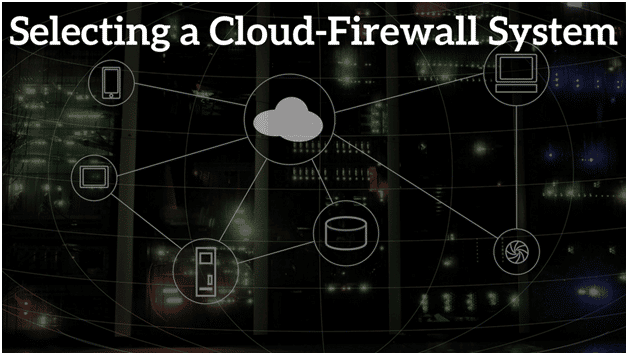
Cloud, the ease of use which comes with it and of course cloud firewall system has become the most talked-about topics in the industry. Traditional firewalls are not effective given the type and range of applications users are accessing. Recent cloud statistics suggests that spending on cloud will grow from $180B in 2015 to $390B in 2020.This clearly calls the need for better security measures. Less than 50% enterprise internet connection today are secured using next-generation firewalls (NGFWs). A hybrid model of security is emerging where some services are on premise and few are cloud based security system (security-as-a-service) which help safeguards networks from ever increasing cyber-attacks.
Let us understand the cloud firewall system
Cloud for itself has security firewall system which are designed to run in virtual data center and monitor traffic moving between applications. The other cloud based firewall security system we are considering here is for the enterprise usage which is designed to protect enterprise network- like an on premises firewall. Managed security service market was about $15B in 2015 up from $9B in 2013.
The breadth of functionality
1.Specific services:
a. Spam filtering
b. Virus scanning; etc
2.Broad unified threat management (UTM)- like service
The process has one thing in common that some or all of the traffic passes through cloud based system for examinations and filtering.
Benefits of cloud based security services
1. Scalability: can scale to meets clients need when required.
2. Ease of upgrade: Functionality can be added as and when needed.
3. Availability: 81% less downtime. It has inbuilt redundancy in its architecture.
4. Lower total cost of ownership: 64% lower total costs of ownership.
5. Simpler management: the service provider does the management task.
Selecting a cloud Firewall
There are certain homework questions an enterprise should work on when choosing a cloud firewall:
1. Is the firewall built on state-of-art security foundation?
2. How will the firewall fit in the network architecture? Does it support secure remote access for mobile users?
3. Performance of system when multiple security services are running.
4. What type of traffic needs inspection does the organization need. Does it offer deep visibility into applications?
5. Extensive support and services to ease any trouble.
Cisco and Fortinet are the forerunners in the Gartner Magic Quadrant as the main challengers. The have good ability to execute and completeness of vision for a security system.
Fortinet’s Managed security services Providers (MSSPs) have achieved a market dominant position with its Fortigate line of high performing firewalls says a Frost & Sullivan study.
Cisco’s NGFWs meet a lot of basic criteria and can be deployed for cloud networking and security. They are next in line after Fortinet’s security solutions for cloud based security.
Logix Infosecurity has Data leakage protection as well as cyber security products which are supported on both Cisco as well as Fortinet’s cloud firewall-security architecture. Our products are well tuned to work with the Next generations Firewalls (NGFWs).